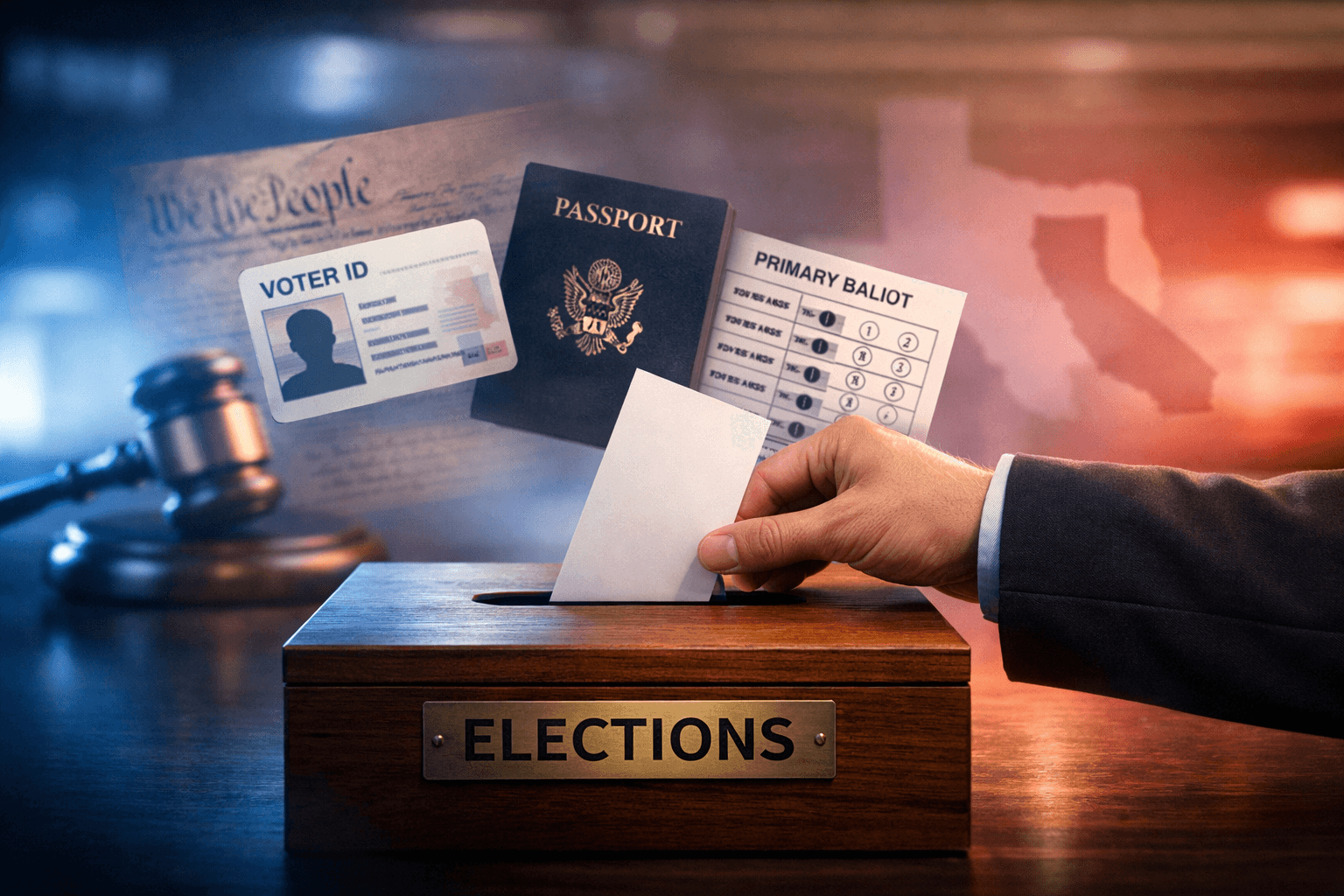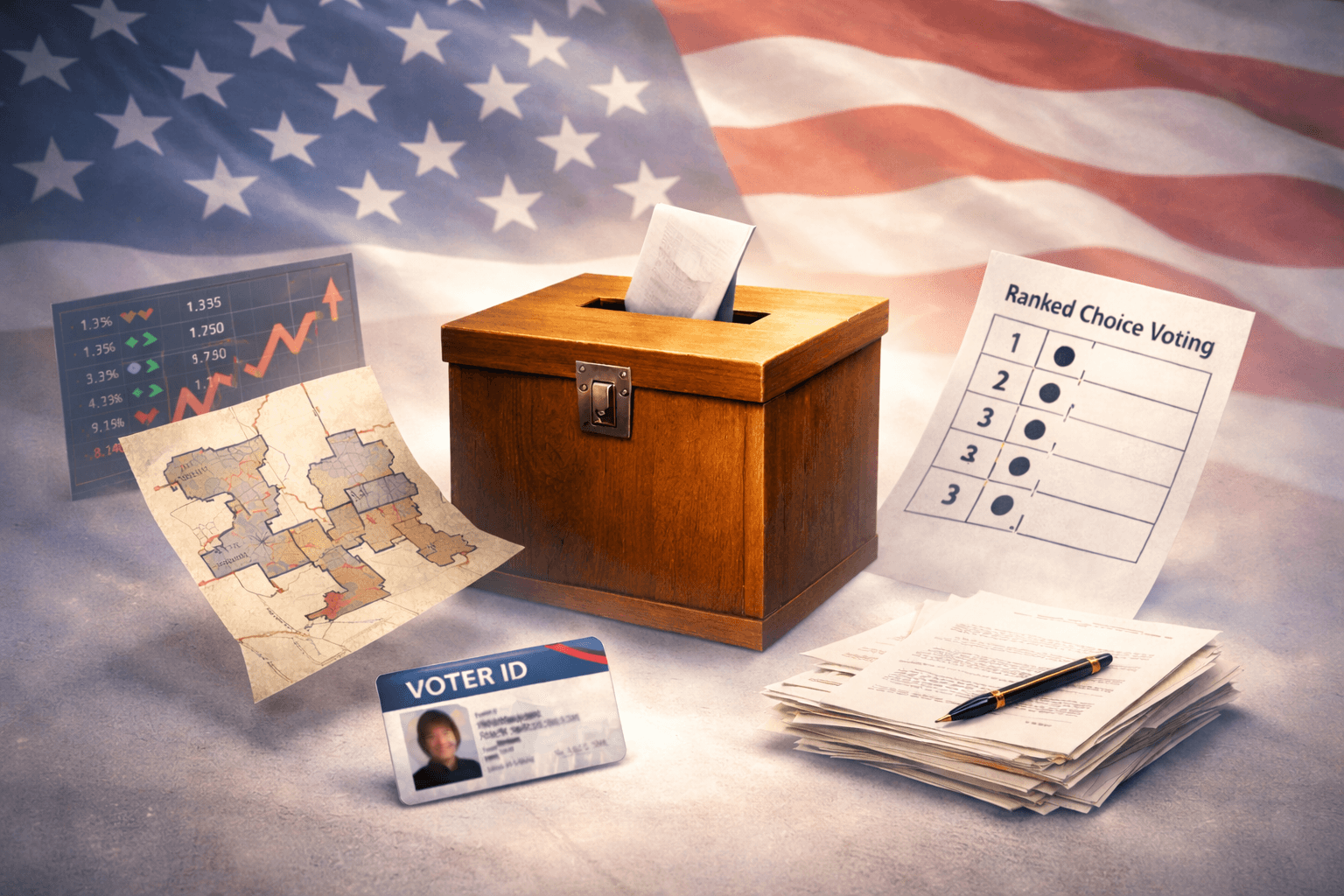Trump Supports Closed Primaries: That's Not Very Populist

In an email sent to supporters, former President Donald Trump issued a statement in support of proposed legislation in Wyoming, SF0097, which would shut voters not affiliated with the two major parties out of taxpayer-funded primary elections. It’s a position that runs in stark contrast to the populist approach he ran on in 2016 and 2020.
“This critically important bill ensures that the voters in each party will separately choose their nominees for the general election, which is how it should be!” Trump states. “It makes total sense that only Democrats vote in the Democratic primary and only Republicans vote in the Republican primary.”
SF0097, which has the full endorsement of Trump, requires voters to register with a political party or change their party affiliation ahead of the primary election in order to receive their desired party’s primary ballot. Meanwhile, voters outside the major parties would be stuck with whomever the parties and their members pick for them in the primary.
This would effectively solidify a system that serves only the private interests of the parties, which does not line up with the anti-establishment message Trump has relied on to build his support.
Trump ran in 2016 on a message that targeted disillusioned and disenfranchised voices of blue collar America. Many of these Americans had grown tired of the leadership of both parties and they saw Trump as a change from the status quo. The fact that he was criticized by Republican and Democratic leaders bolstered this anti-establishment and populist image.
Yet, by supporting closed primaries, he is supporting a system that perpetuates the overwhelming feeling among millions of Americans that they are not being represented, because closed primaries historically favor those already in power, and are meant to enforce the self-serving interests of the Republican and Democratic Parties.
Wyoming currently conducts open partisan primaries, which means every voter has an opportunity to decide which candidates advance to the general election. Voters choose between a Republican or Democratic primary ballot and select from the slate of candidates of that party.
Partisan leaders and elected officials who criticize this system point to a potential scenario in which voters from the opposing party could choose their party’s ballot so they can sabotage the results. The parties argue for their right to not associate with non-members, and offer legislation that would force voters to associate with private political organizations in order to vote.
However, primary reformers point to an obvious solution that respects the rights of parties AND voters: A nonpartisan primary where all voters and candidates participate on a single primary ballot. The top vote-getters (2, 4, or 5 depending on the system) move on to the general election.
Nonpartisan open primaries respect the rights parties have to not associate with non-member, and does not condition the right to vote in taxpayer-funded elections on associating with a private organization. A nonpartisan system also takes control over a critical stage of the election process out of the hands of party leaders and increases competition for voters, which in turn incentivizes accountability among elected officials. In other words, it serves a public goal, not a private one.
Any candidate that touts an anti-establishment, populist message should support reforms that empower voters, not policy changes that would shut voters out of the process. Such innovative ideas are how we give a voice to the millions who currently feel voiceless.
Nonpartisan primaries are currently in place in Washington state, California, Alaska, and Nebraska (for state legislative elections). Alaska expanded on the nonpartisan top-two systems in place in Washington and California with a top-four system. A nonpartisan top-five system combined with ranked choice voting in the general election is also being considered in places like San Diego and Wisconsin.
 Shawn Griffiths
Shawn Griffiths





